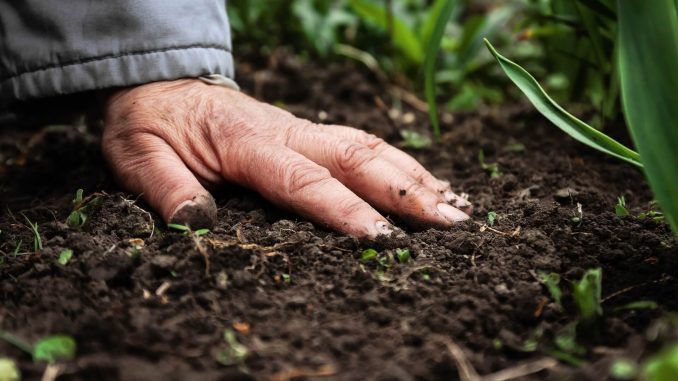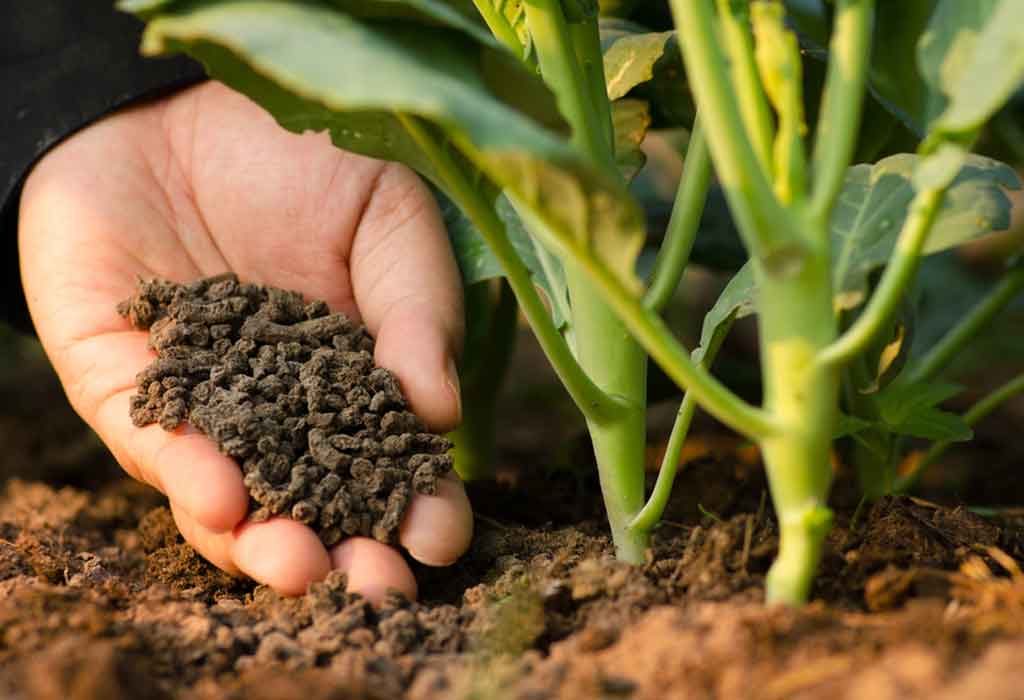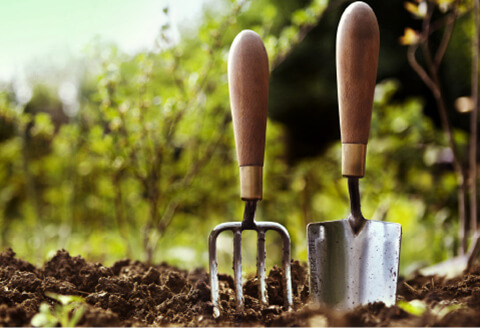
“Advantages of organic fertilizer”, I have had many discussions about this topic. Organic fertilizer is the best fertilizer for your garden because it promotes healthy plant growth without harmful chemicals.
Organic fertilizers are natural, biodegradable, and environmentally friendly. They work by improving soil quality, increasing nutrient availability, and providing a good environment for organisms to live in.
In this blog post, we will discuss the advantages of organic fertilizer. So you can make an informed decision before deciding what type of fertilizer to use on your plants!
Continue reading this post about advantages of organic fertilizer!
What is an organic fertilizer, and how does it work
Organic fertilizer is made from natural substances, such as animal manure or compost. It’s an alternative to chemicals that can be harmful to the environment.
It helps plants grow by providing them with essential nutrients like nitrogen and phosphorus. That makes it easier for plants to take up other fertilizers you might add later on in the season. (benzinga.com)
Organic fertilizers are available at many garden centers and home improvement stores in different forms. Including pellets, liquids, powders, granules and blocks.
Choose a type of organic fertilizer based on your needs for your specific plant or area. For example, if you have very sandy soil, choose a pellet form of organic fertilizer. Because it will break down well into your soil.
On the other hand, if your garden or flower bed has much clay in the soil. Then, you might want to consider using granules instead because they tend to break down faster than pellets.
Why choose organic fertilizer over chemical, synthetic fertilizers
We all know how harmful chemicals are for humans and animals alike. So why would anyone want to use them in their garden?
Organic fertilizer contains complex carbon molecules that release nitrogen slowly over time. It provides for a steadier release of nitrogen up to three months after application.
Chemical fertilizers, on the other hand, are made up of simple sugars and salts. It releases nitrogen quickly and can harm plants because they release too much.
Why organic fertilizers are better for the environment
Chemical fertilizers break down quickly, which means they can easily flow into waterways. That results in algae blooms harmful to aquatic life if too much nitrogen releases into their habitat.

Inorganic fertilizers can be a quicker option, but they also tend not to stick around as much in the soil. This means you will have to re-apply them more often than organic ones might need attention!
Disadvantages of using chemical fertilizers instead of organic fertilizers
Some people choose chemicals because they can purchase them cheaply and readily available at their local garden center or supermarket.
Unfortunately, chemical fertilizers can end up costing more in the long run. Because you will have to spend more money on them to keep your garden healthy.
Chemical fertilizers might be cheaper at first. However, they do not provide a steady supply of nutrients.
Since they don’t contain any slow-release nitrogen and phosphorus. So you will have to continue applying them to your garden throughout the growing season.
Advantages of organic fertilizer over chemical fertilizers
Safer for plants and people alike
Chemical fertilizers can harm plants. As they release too much nitrogen at once, which causes them to grow faster but weakens them.
Organic fertilizers are safer for the environment and provide a steady stream of nitrogen over time for healthy plant growth.
Cheaper than chemical fertilizers
Organic fertilizers cost less to make, store and transport. So they typically don’t need any processing like chemical fertilizers to do.
It’s made from dead plants and animal manure collected from farms which helps reduce greenhouse gases.
Not only that, but it also reduces water pollution and air pollution. The reason is that there is no need for additional processing after collection.
Last longer
Organic fertilizer works more slowly than chemical fertilizers, but this is a good thing. It doesn’t leach into the groundwater and pollutes rivers, lakes and oceans.
This fertilizer provides all the nutrients your plants need to grow healthy for up to 3 months after application!
Which organic fertilizer is best to use in your garden
There are several different types of organic fertilizer available, including
- animal manure,
- composted manures,
- fish meal,
- blood meal,
- feather meal,
- cottonseed meal,
- bone meal,
- green sand and
- kelp meal.
Each one is made from a different source. Also, provides a different set of nutrients for your plants to utilize to grow their best.
Manures are the best for organic fertilizers. As they provide a steady stream of nutrients over several months. While applied around your plants or directly on the soil.
They are also a great source of organic matter, beneficial microorganisms and support earthworms in your soil.
The fish meal provides more nitrogen than any other organic fertilizer. It is great for leafy vegetables, root crops and early flowering plants.

However, high application rates will cause nitrogen levels to build up, burning the plant’s roots over time.
A blood meal is a good organic source of slow-acting nitrogen. So it’s fantastic to use on seedlings, bulbs and root crops.
It has also been used to help control slugs in the garden. Because slugs are attracted by the smell of blood meal they mistake it for their natural food—earthworms!
Bone meal is great to use on flowering plants and root crops because it’s packed with phosphorus and calcium.
It also contains trace minerals that help strengthen your plants’ cell walls and tissues. Moreover, it provides disease resistance and aids in photosynthesis.
Kelp meal is a great organic source of nitrogen, potassium, calcium, iron and manganese. The best thing about kelp meal is that it releases all of these nutrients slowly over time. So it’s perfect to use on fruit trees, berries and perennials.
Composted manures are just animal manure that has broken down through composting. So they break down very slowly. Because the high heat required for composting destroys any disease-causing organisms in the manure.
They are a great addition to your garden. Since, they provide a slow release of nutrients, add organic matter and improve soil structure.
They also help control erosion around the garden which is pretty good if you’re on sloping land!
How to apply the right amount of organic fertilizer at the right time
When you apply organic fertilizer to your garden, you need to be careful not to overdo it. This is because the plants will then become sick and stop growing well.
Mulching with chipped bark, composted manure, or straw will help keep water in the soil. While retaining essential nutrients on top of the soil where plants need them most.
Applying organic fertilizer before planting or seeding is also important. So it’s best to spread the fertilizer evenly over the garden and water it well. And then plant your seeds or seedlings directly into the fertilized soil.
Always read the instructions on the label of whatever product you are using. That is because this will tell you how much fertilizer to use and when.
Never apply more than is recommended. The reason is this can lead to a nutrient overdose in your soil which won’t harm you or your plants.
It will burn the soil microorganisms living in the soil, so they’ll release fewer nutrients for your plants to absorb.
Organic fertilizers are great for your garden. As they’re completely natural and contain lots of useful nutrients. It will help to keep your plants healthy and productive.
Can you list the advantages of using organic fertilizer?
Organic fertilizer is a sustainable way of fertilizing your plants. It has the following advantages:
- It does not contain any hazardous chemicals that can harm people or animals.
- Using organic fertilizer reduces the need for chemical pesticides, which are harmful to humans and animals.
- Organic fertilizer releases nutrients slowly over time, not damaging soil microorganisms as conventional fertilizers do.
- Using organic fertilizer builds healthier soils. That is because it offers many benefits to the microbial life in your garden. Then absorb more nutrients for your plants to utilize.
Conclusion
Thanks for reading this article about the advantages of organic fertilizer. There are many organic fertilizers available for use in your garden. So don’t hesitate to get out there and mix it up a little.
Don’t forget to visit our website for more information on how to grow your fruit and vegetables by using organic fertilizers only!

Leave a Reply